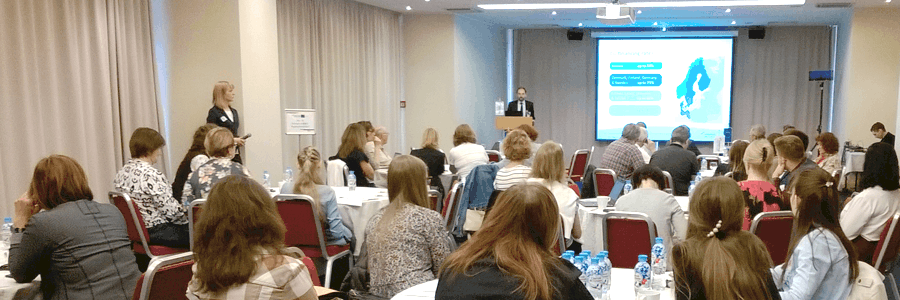St. Petersburg hosted the second seminar for Russian partners and their lead partners from the second call projects. Altogether, more than 20 Russian partners are involved in 15 projects that tackle challenges beyond borders. Russian organisations slowly but steadily join transnational cooperation as partners in Interreg Baltic Sea Region, after a break since 2008.

Seminar in St. Petersburg, © IB.SH/ Václav Kaplan
St. Petersburg invited Interreg Baltic Sea Region projects for training
The MA/JS brought to the discussion issues of the biggest concern for the successful implementation of projects: responsibilities and cooperation among project partners, payment and control of funds, eligibility of costs and visibility.
The Russian partners confirmed their commitment to joint work. They were determined that they would catch up: most of the projects have two more years to create results attractive for the regions and build trust across the borders.
The Monitoring Committee of the Programme recently approved the amended Programme Manual, which is the depository of project rules. It included further guidance for Russian project partners, in particular on first level control, and visibility rules.






